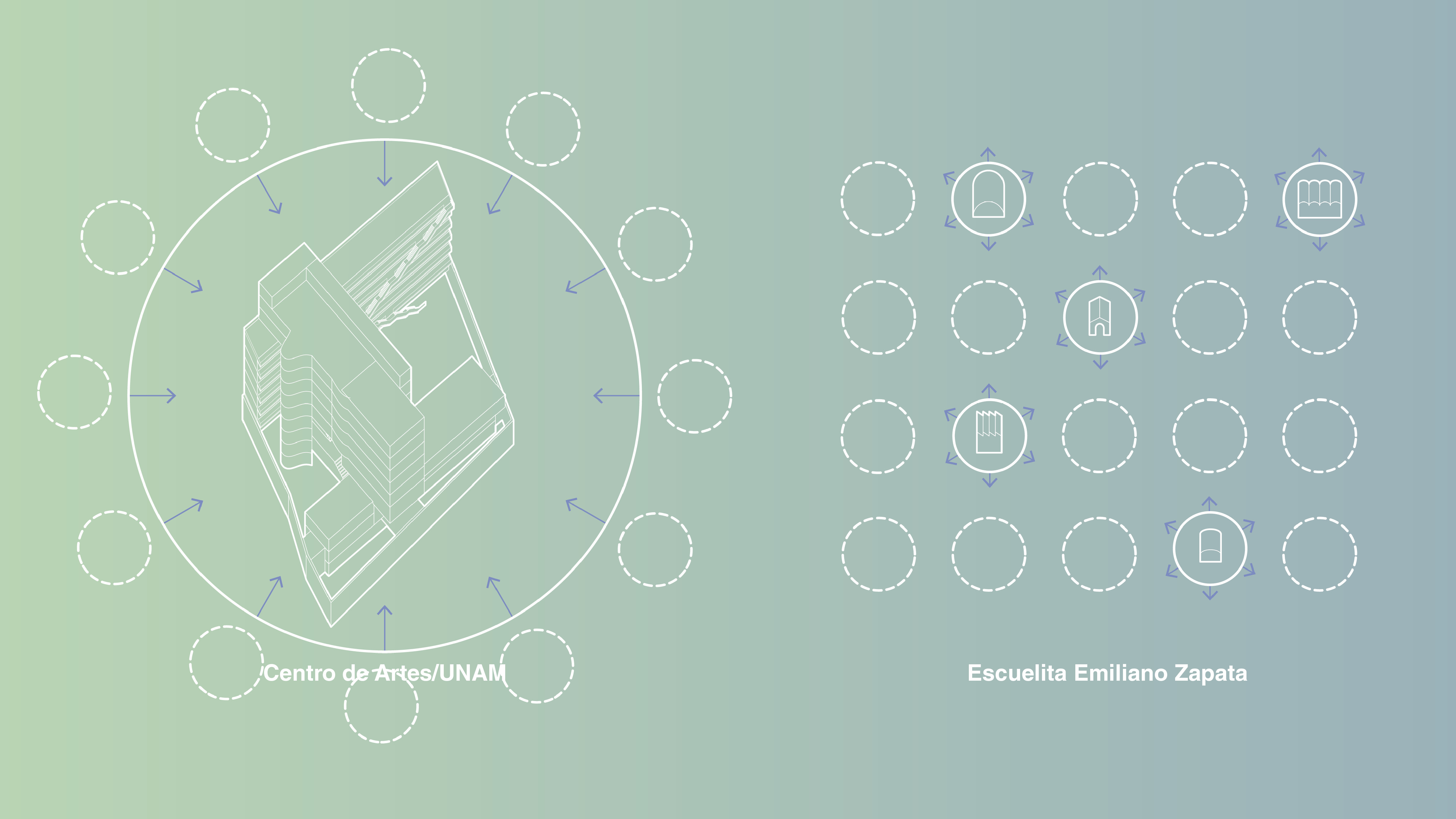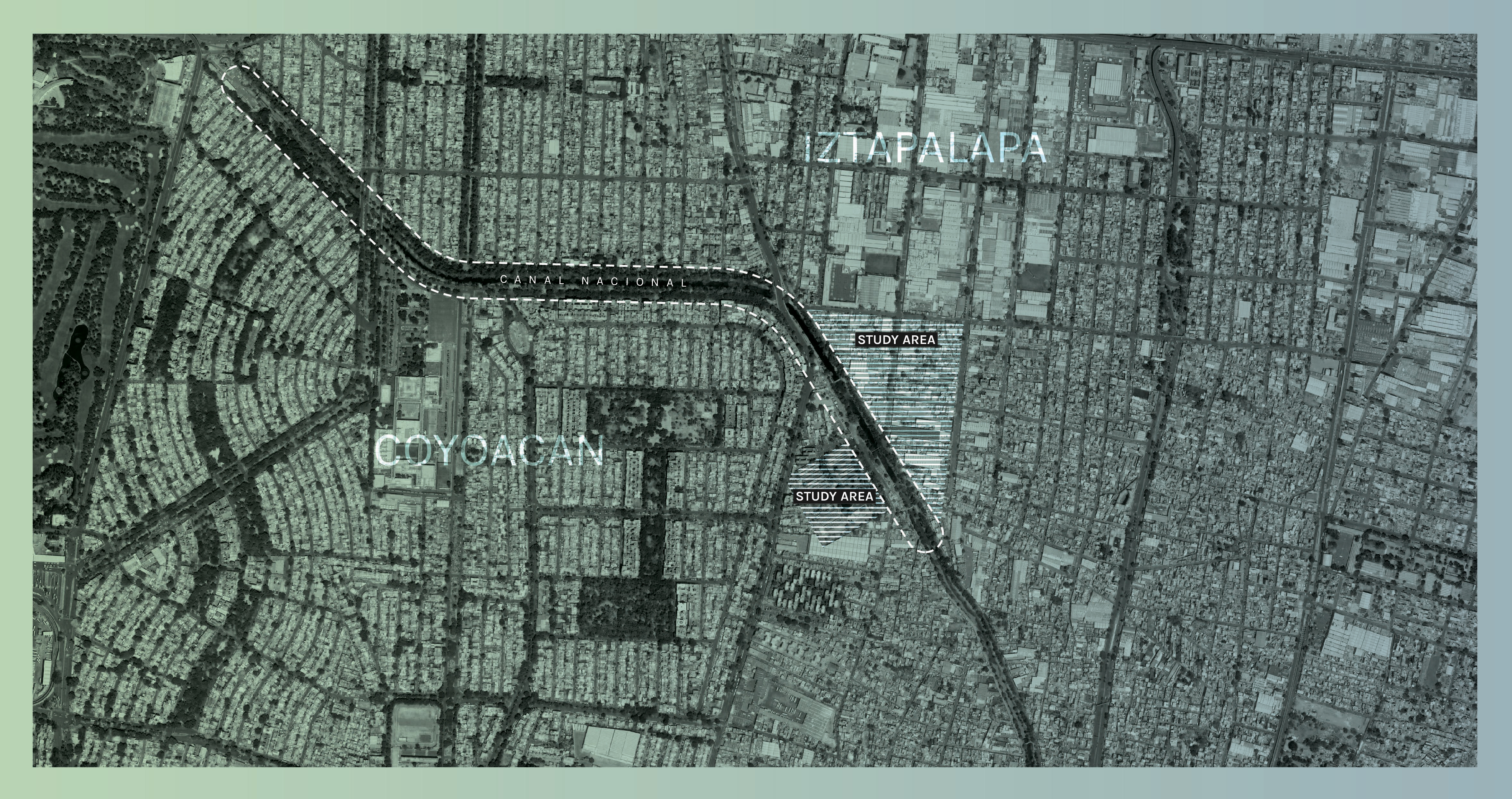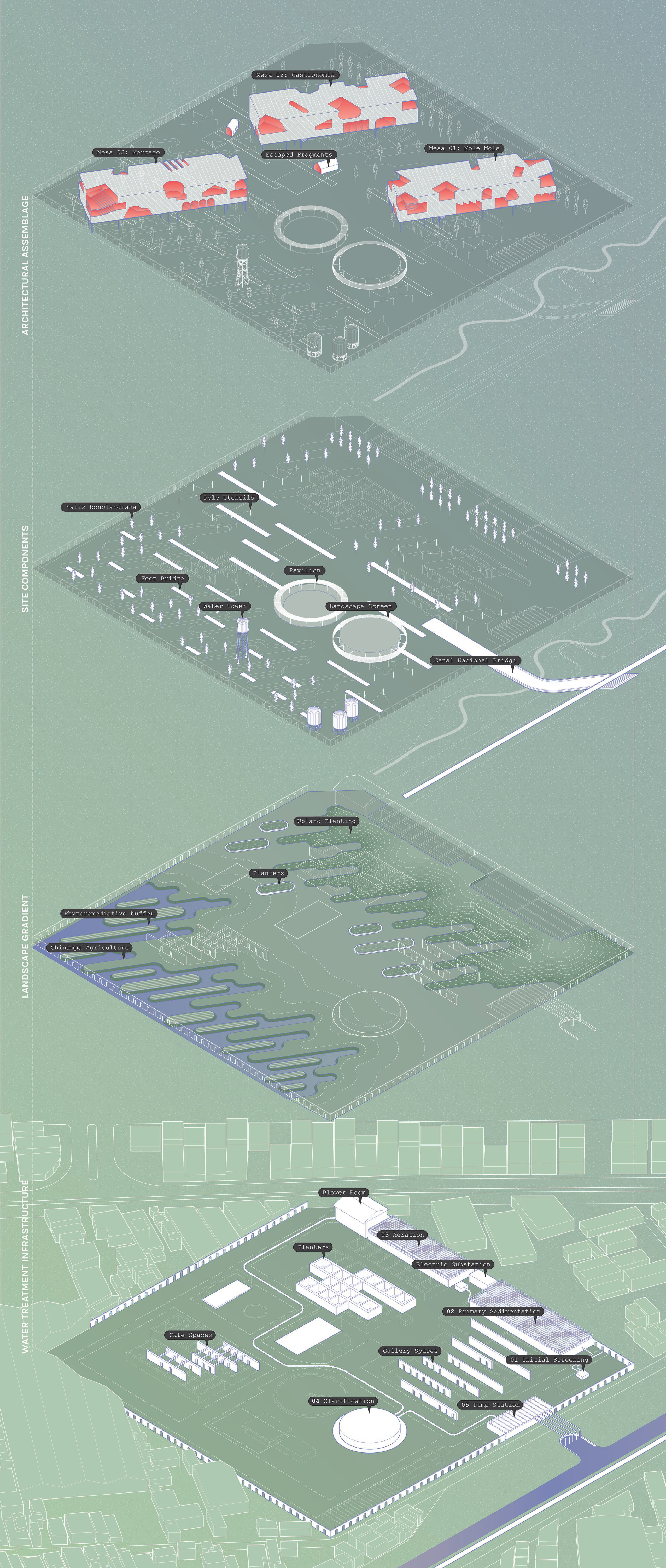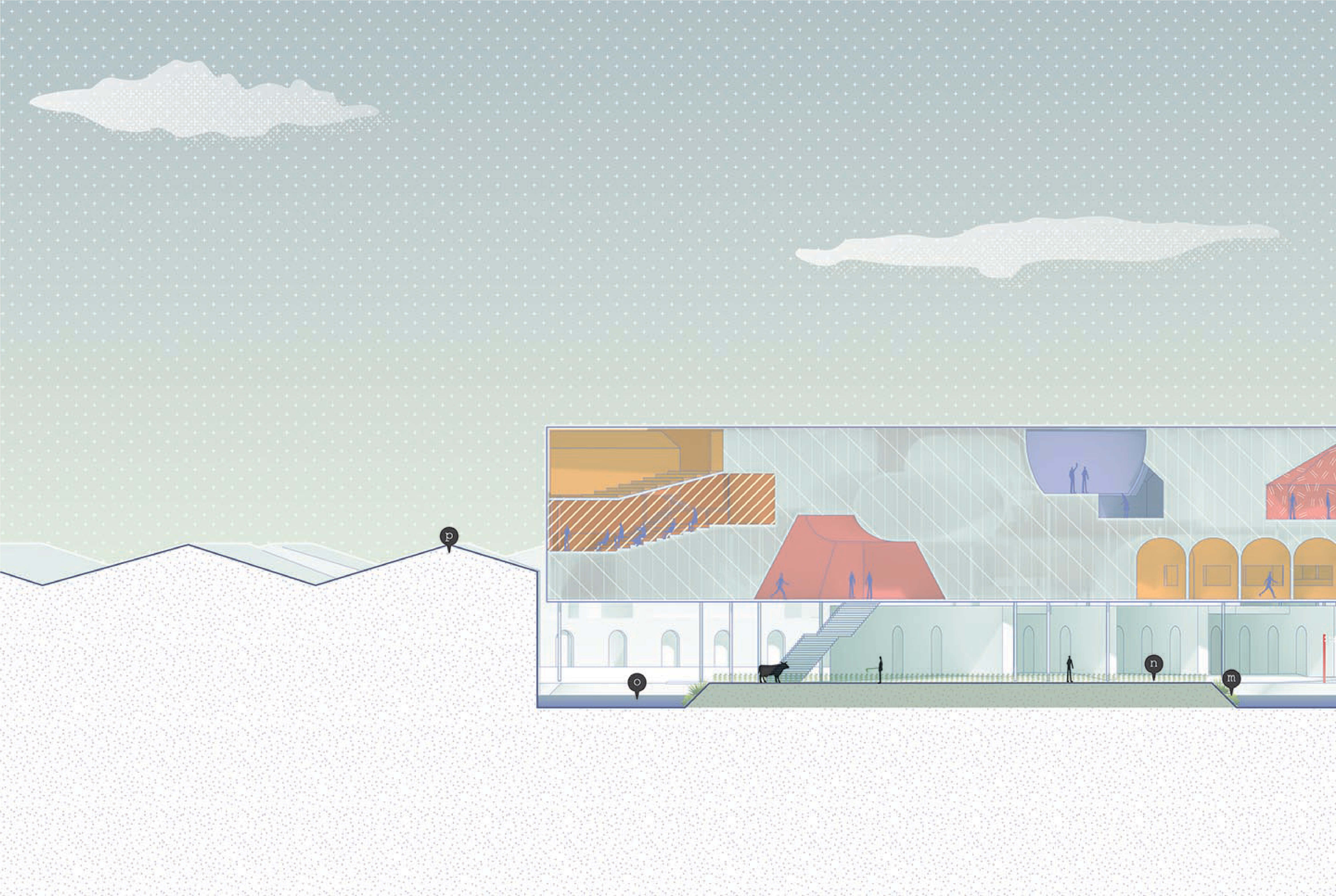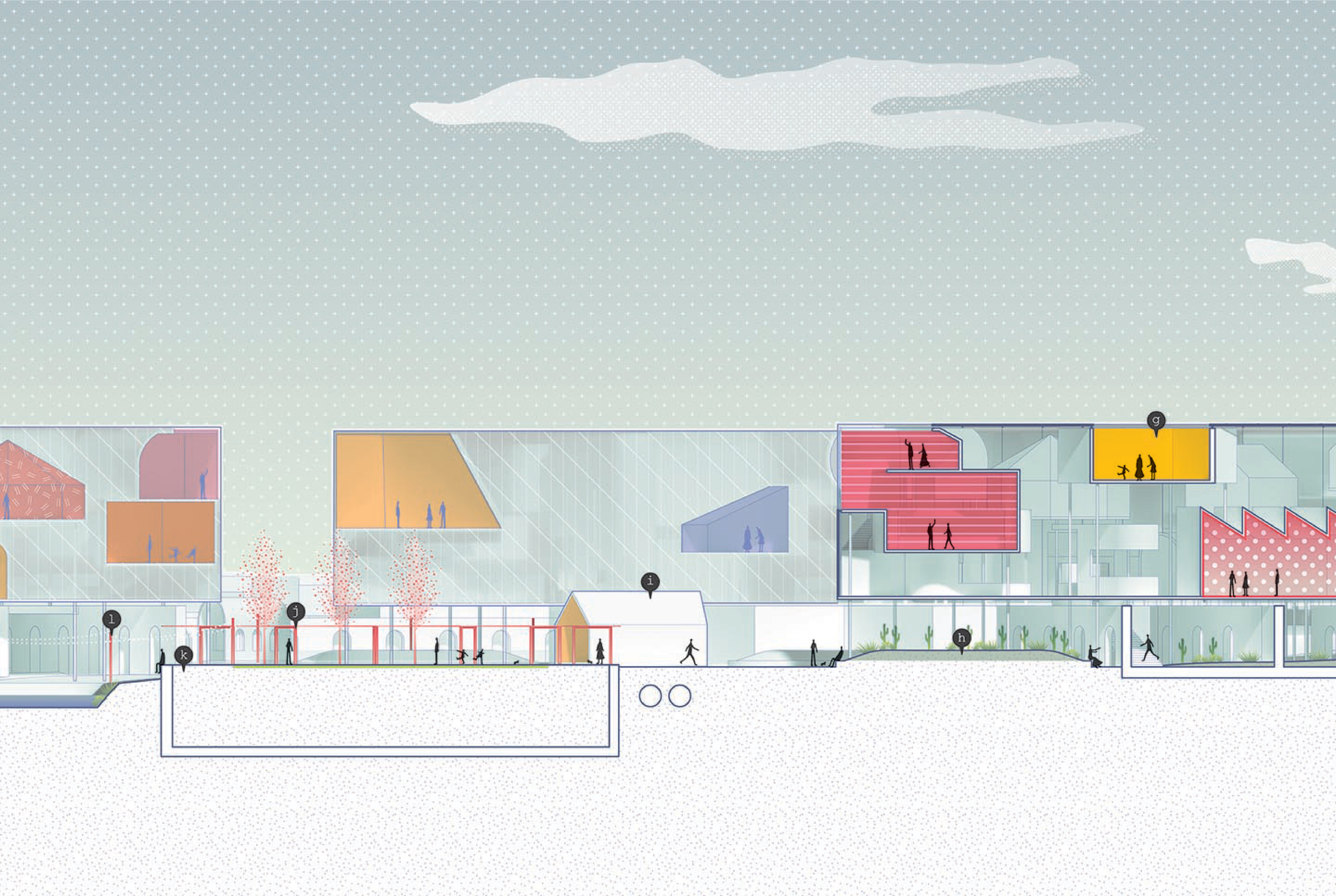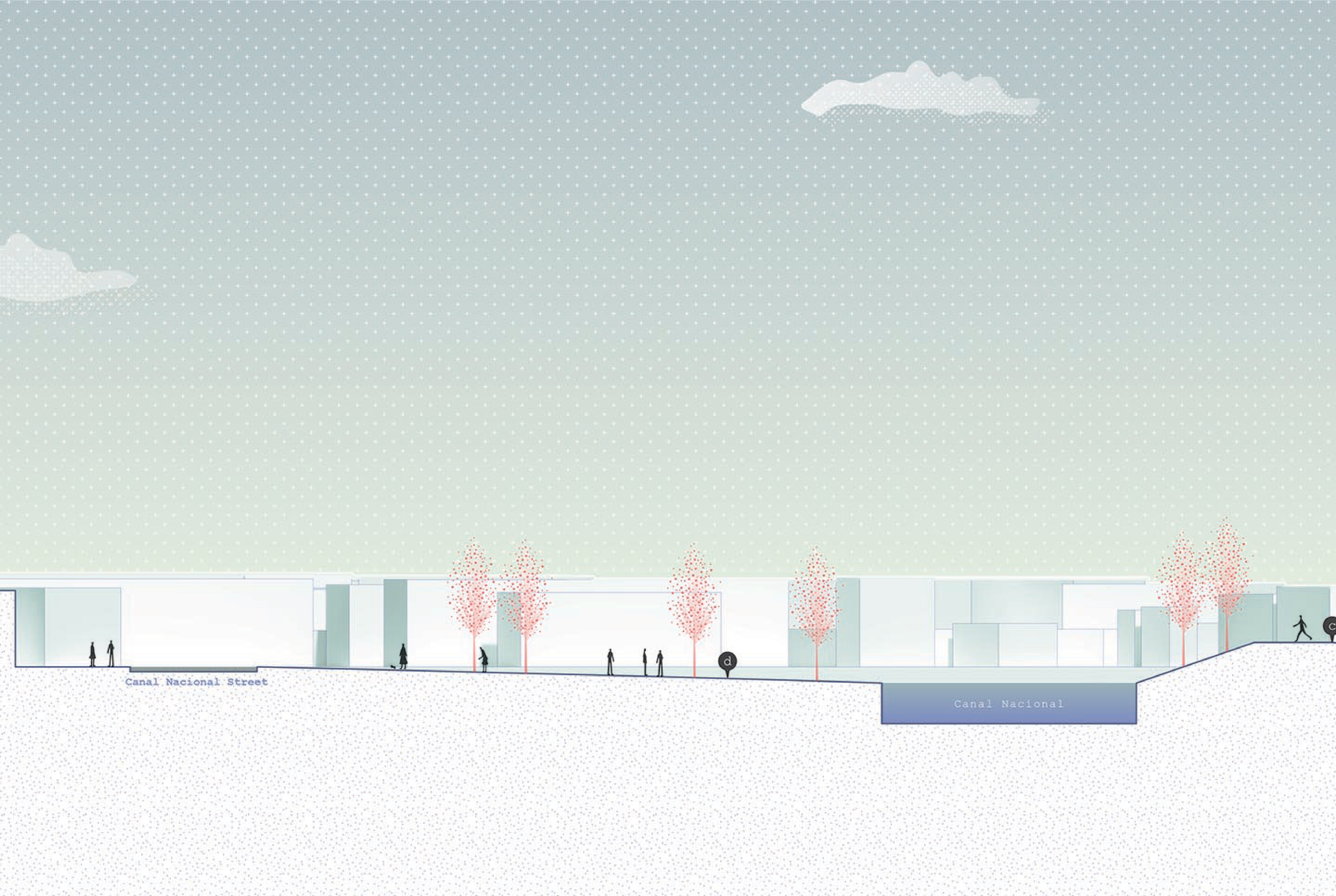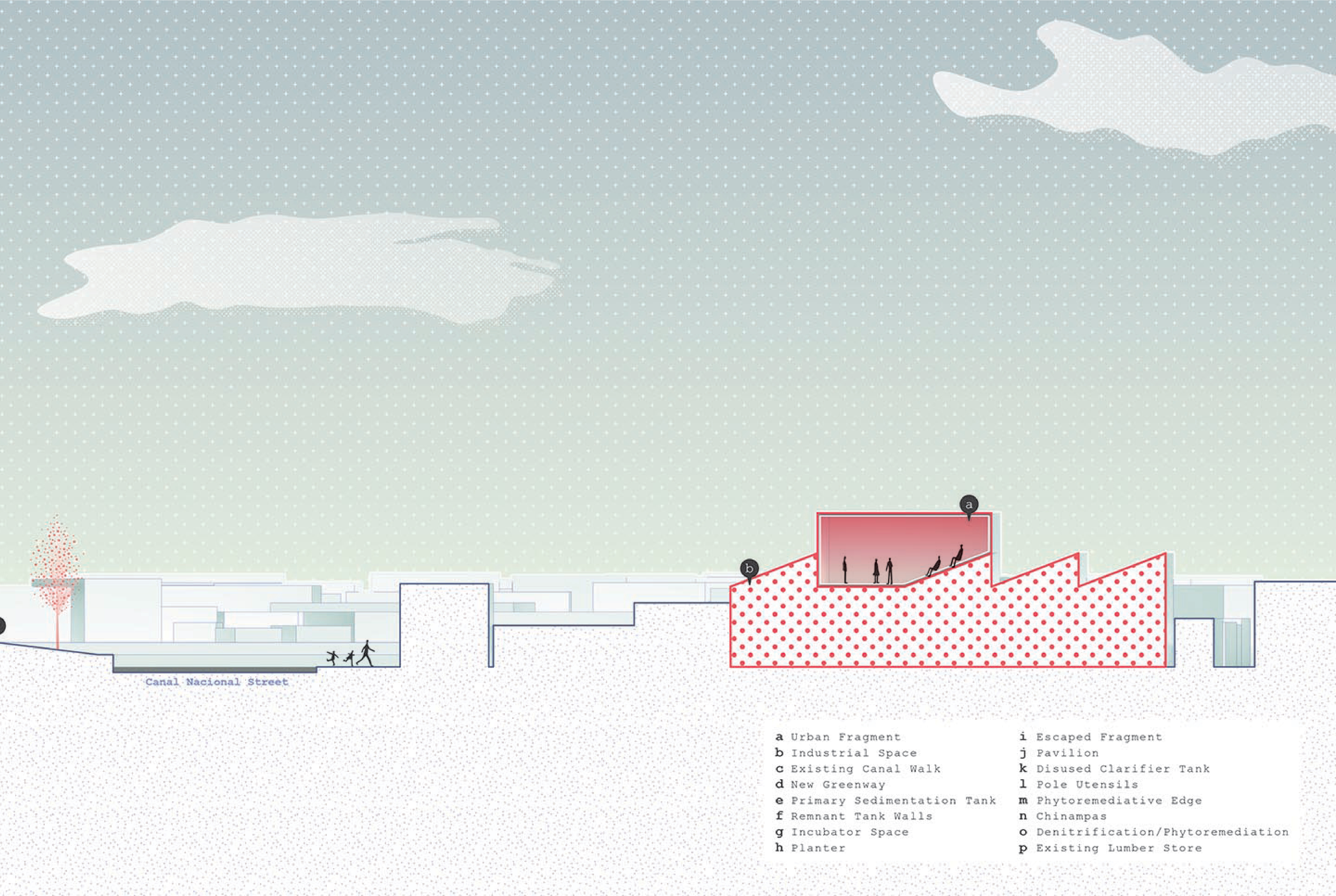Tu Mesa
Spring 2019
Team: Abirami Manivannan, Salvador Lindquist
Through the study of emerging cultural institutions in Mexico City, our project operated at the intersection of food, water, and education by reimagining an underutilized water treatment plant along the Canal Nacional. The canal, which is the last remaining vestige of Mexico City’s navigable water infrastructure, divides Coyoacan and Iztapalapa both visually and physically, emphasizing stark contrasts in quality of life, economic opportunity, and education. While Coyoacan is perceived as being one of the most affluent districts in CDMX, Iztapalapa frequently holds the highest rates of poverty and crime.
Rapid urbanization disproportionately drained Iztapalapa of one of its most valuable resources, chinampa agriculture, which are agricultural “islands” native to Mexico City. The people were left with neither the land necessary to farm nor the skills necessary to thrive in an urban economy. Inspired by a Mexican saying, “De la Chinampas a tu mesa,” (From the Chinampas to your table) our project, Tu Mesa, leverages the agricultural heritage of the Chinampas, the contentious perception of water and the gastronomical vibrancy of the city to create a new cultural landscape surrounding culinary education.
We imagine Tu Mesa as a platform to bridge the divide between Coyaocan, Iztapalapa and broader CDMX, making the social, economic, and cultural connections stronger. The architecture, which houses various programs like food performance galleries, culinary libraries, sensory food labs, community kitchens, and mezcal distilleries, sits above the landscape as to allow the continuity of the public realm, engaging and coming into contact through public facing programs like community spaces and restaurant incubators. The porosity of the ground plane, the surrealistic experience of walking through the floating productive landscape, and the playfulness of the architecture fosters informal appropriation and creates emergent cultural affordances. People from the surrounding boroughs and from the city will gather around Tu Mesa, their community table to collectively celebrate and experience the culture of food, water, and education.



